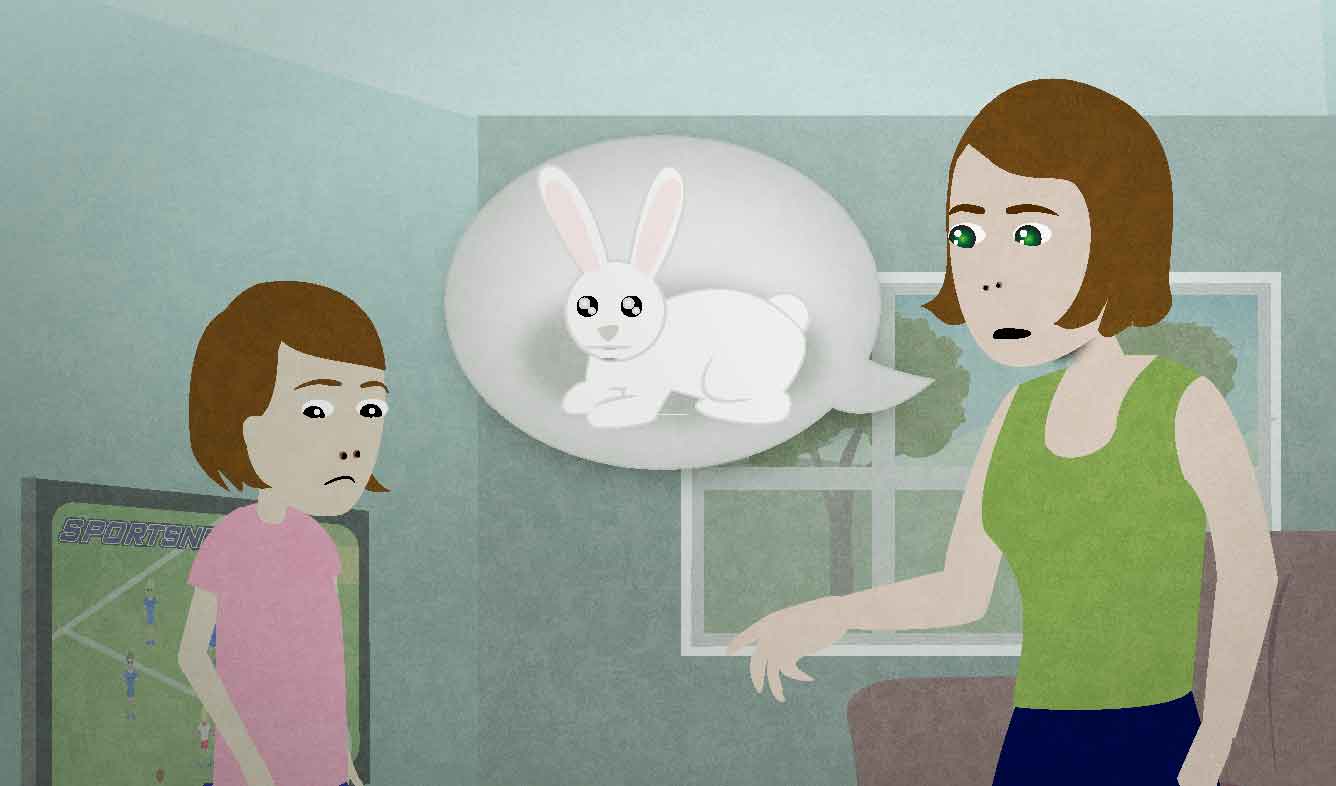“You promised me that you would be responsible for him.”
You got your daughter a pet rabbit. When you got it for her, you made her promise that she would take care of it. You say this because you've noticed that the rabbit's cage is dirty and its food is all gone.
You promised me that you would be responsible for him.
Want Video and Sound? Follow us on YouTube

(someone) promised (someone) that (clause)
This is how to describe a promise. To talk about a promise, you need two pieces of information:
- who the promise was made to
- what the promise was.
The "who" part comes right after the word "promise":
She promised him that she'd pay him back.
The information about the promise comes in the clause at the end:
She promised him that she'd pay him back.
Sometimes you can leave out information about who the promise was made to:
She promised that she'd pay him back.
You can also say it this way:
She promised to pay him back.
If the "promise" is being made right now, you use "will":
I promise that I'll take good care of him!
If the promise happened in the past, you use "would":
She promised that she would take good care of him.
be responsible for (something)
"Being responsible for" something means that you have to take care of it and make sure that it's OK. For example:
I was responsible for taking care of my little brother.
This means that it was your job to take care of your brother. If something bad happened to your brother, you would be blamed for it.
Here's an example that you might see on a sign in the locker room at a gym:
Total Fitness Club is not responsible for any missing or stolen items.
This means that the gym will not have to pay for your things if they get stolen.
